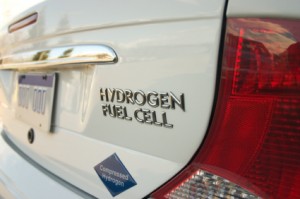|
Listen To The Article
|
 Depending on what generation you belong to, you may have grown up watching the Jetsons, a cartoon family on TV. The show presented a number of innovations, including Rosie (the robot maid), air tubes instead of elevators, and having everything available at the touch of a button—right down to having your teeth brushed. The greatest innovation showcased on the series was the flying car. Available in all shapes and sizes, the car could retract into a small, briefcase-sized bundle at the touch of a button, alleviating parking issues forever. Most of the show remains far-fetched, but the image of a flying car has stuck with many people over the years.
Depending on what generation you belong to, you may have grown up watching the Jetsons, a cartoon family on TV. The show presented a number of innovations, including Rosie (the robot maid), air tubes instead of elevators, and having everything available at the touch of a button—right down to having your teeth brushed. The greatest innovation showcased on the series was the flying car. Available in all shapes and sizes, the car could retract into a small, briefcase-sized bundle at the touch of a button, alleviating parking issues forever. Most of the show remains far-fetched, but the image of a flying car has stuck with many people over the years.
Modern technology has grown and changed at a tremendous rate during the past four decades, but the automobile changed very little until recently. This was due more to the fuel source itself than any other considerations. As our focus started shifting from petroleum-based fuels to alternative energy sources, car design began to shift toward models that were more futuristic.
The advent of hydrogen as an alternative fuel provided the greatest promise toward a truly futuristic vehicle. Hydrogen, a potentially limitless resource, may eventually provide more power to a vehicle than petroleum-based fuels, and this fuel may one day make it possible to own a flying car.
Cars can utilize hydrogen in one of two ways: either as a fuel akin to gasoline (requiring regular fill-ups to run the vehicle), or incorporating the hydrogen into fuel cells. Fuel cells are more efficient, but they have been cost-prohibitive to this point. However, a new method of producing fuel cells could cut those costs and put them within reach of the average consumer.
The other method of using hydrogen as fuel has provided researchers with an endless series of challenges. As hydrogen is a naturally light element, it is difficult to condense enough in one place to power a car for any length of time. A new study by researchers from the Los Alamos National Laboratory (LANL) proposes a solution to this problem.
While hydrogen is not a dense element, it possesses tremendous energy content per unit mass as versus petroleum. The critical issue is gathering enough in a confined space to create power (this is what makes fuel cells more efficient than this method of using hydrogen). “Storage” chemicals that contain hydrogen for use as fuel facilitate this type of system by making it possible to store greater amounts of hydrogen in one tank of fuel.
The LANL research team has determined that one specific chemical compound, ammonia borane, can store hydrogen up to 20% by weight. While this number seems low, it is very impressive in comparison with hydrogen’s atomic mass. With storage facilitated by ammonia borane, a hydrogen-powered vehicle could travel approximately 300 miles on one tank of fuel, which is equivalent to a regular tank of gas. Fuel could be added to a vehicle in several ways, most notably contained in a discrete unit that could be removed and recharged or recycled after each use.
At present, the recycling stage involves a lengthy process. Previous hydrogen fuel models required complex equipment to recycle the used fuel, and other storage mediums were inefficient. With the new chemical compound, the team thinks the recycling process can occur within one container.
When a spent fuel tank is removed from a vehicle, it’s sent to a recycling center where the ammonia borane is piped into the container. Chemical reactions within the container recharge the ammonia borane with hydrogen, and then the fuel tank is refilled with the charged medium. Finally, the tank is reinstalled in a vehicle.
As ammonia borane can store such a high percentage of hydrogen, the medium can be recycled to collect more usable fuel than previous storage mediums, which reduces overall fuel production costs and potentially speeds up the recharging process. Researchers envision the system as interchangeable fuel “tanks” that can be removed from a car, sent to the recycling center, and then returned as a fully charged fuel source.
At present, hydrogen-powered vehicles are scarce due to production and recharging costs. Few countries have infrastructure that support such vehicles (in the United States, Los Angeles is a notable exception with 16 hydrogen filling stations), and vehicle production is limited due to the high associated costs—$40,000 or more to produce one vehicle. However, each research program takes us a step closer to the day when scientists will determine the most efficient and cost-effective way to use hydrogen as a fuel source. When that happens, we may well see the flying car of the future.
_____________________________________________________________

_____________________________________________________________
 Off The Grid News Better Ideas For Off The Grid Living
Off The Grid News Better Ideas For Off The Grid Living



